The 13 Drinks To Sip On For A Longer Life, Say Doctors
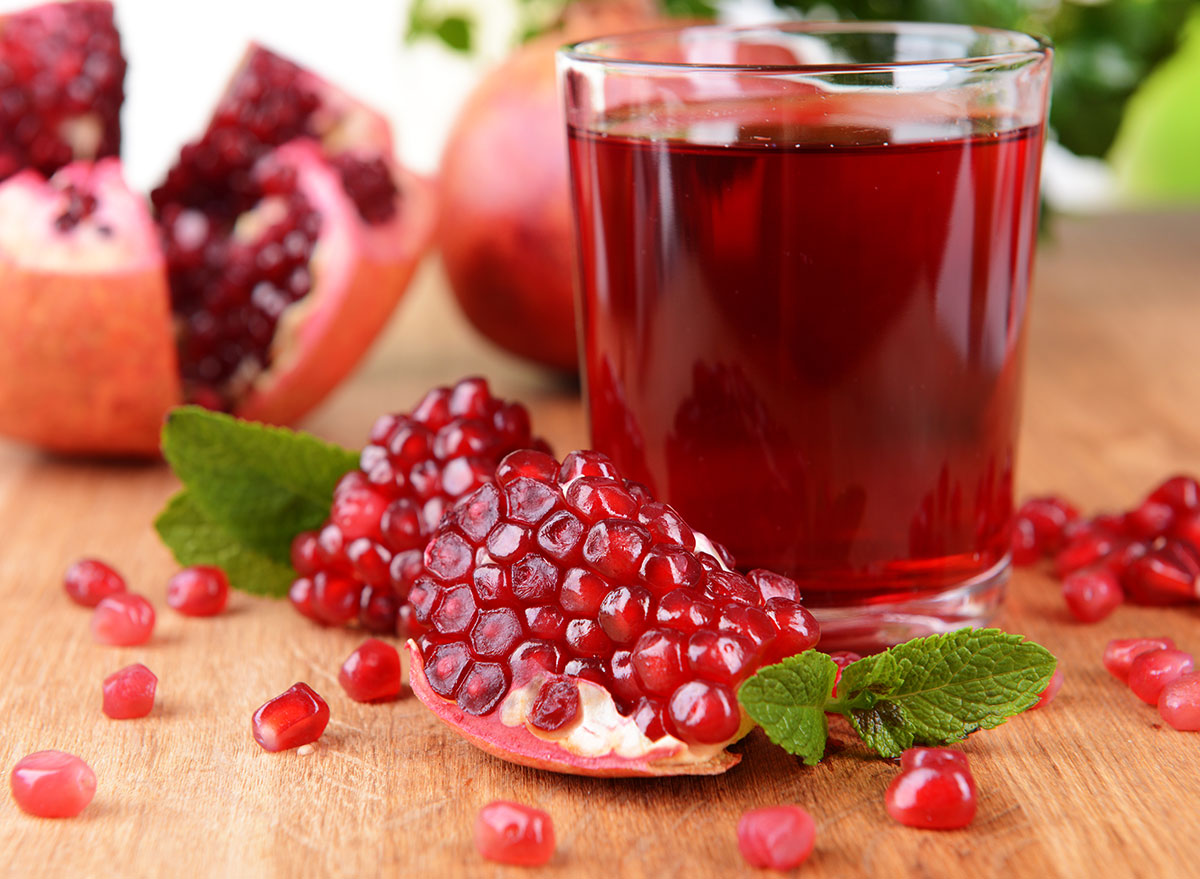
In ancient China, emperors eagerly sought out a magical drink that would grant them eternal youth—and alchemists continued attempting to concoct this supposed miracle cure, commonly known as the “Elixir of Long Life,” well into the 19th century. Sadly, it seems that no one has quite figured out a recipe for this fabled potion that truly does offer immortality. The good news? Doctors say there are plenty of drinks to sip on for longer life.
Inevitably, when you meet a centenarian—or someone over the age of 100—your first question will be: what’s your secret? And some people attribute their longevity to some pretty unorthodox habits. For example, one 104-year-old Texan credits her long life to drinking Dr. Pepper, and another 110-year-old New Jersey resident points to her habit of downing three Miller High Lifes a day.
While we definitely can’t condone guzzling sugary soda or beer (and obviously doctors can’t either), there are plenty of other sippers with science-backed health benefits. Who knows? Incorporating these drinks into your daily diet could very well add a few years to your life. And for more on healthy eating, check out our list of 21 Best Healthy Cooking Hacks of All Time.
Water
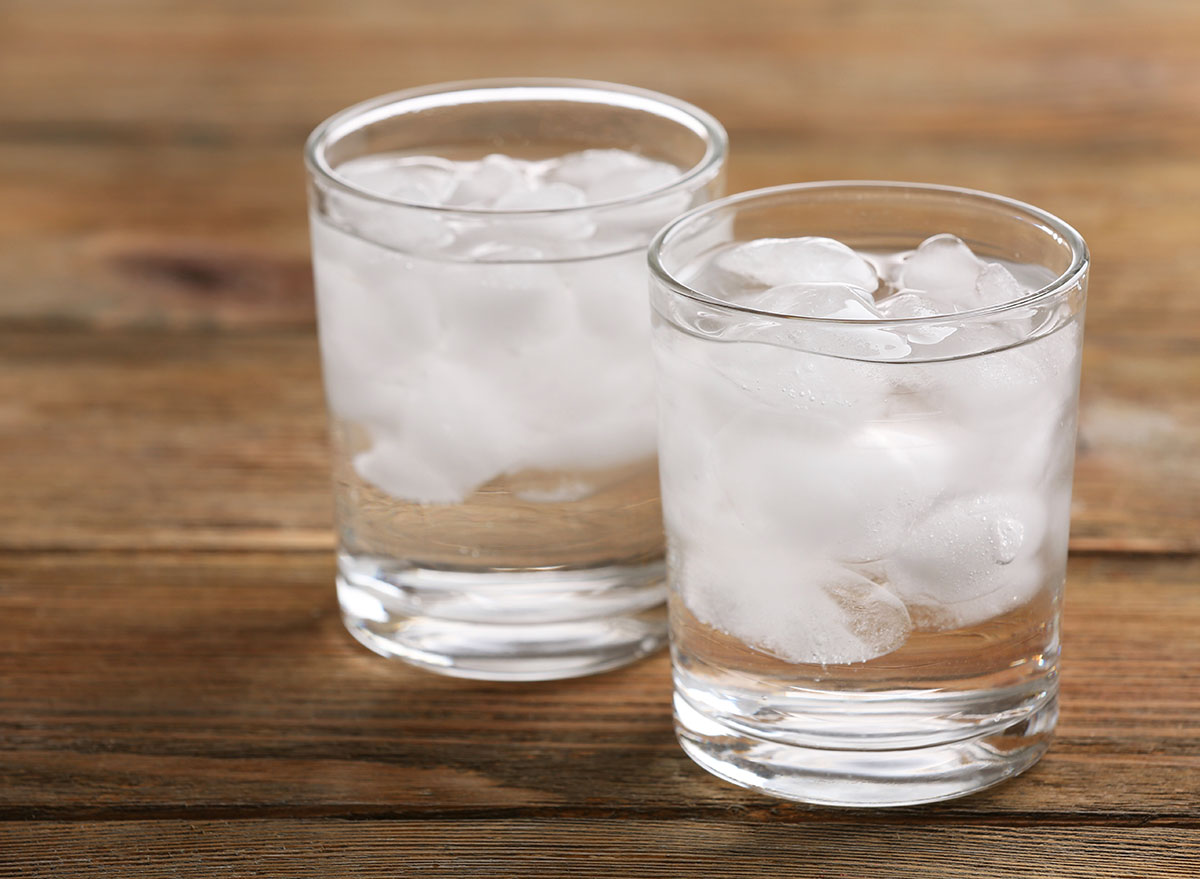
Let’s start with the obvious: Your body is about 60% water, so in order to make sure every system is working properly, you’ll need to keep it hydrated. According to a Harvard Medical School health report, water aids in digestion, carrying nutrients and oxygen to your cells, flushing bacteria from your bladder, protecting organs and tissues, and maintaining electrolyte (sodium) balance.
Cardiologist Dr. Leonard Pianko, MD, also notes that water can promote your longevity by keeping your blood pressure level within normal limits.
The amount of water you need to drink every day depends on your diet, physical activity level, gender, size, and other factors—so you may want to consult with your doctor to get an individualized answer. That said, The National Academies of Science, Engineering, and Medicine recommends that men drink about 3.7 liters (about 125 ounces) a day and women drink 2.7 liters (about 91 ounces).
Dr. Andrew Ordon, MD, FACS, co-host of The Doctors, advises drinking a glass of hot water and lemon first thing in the morning after you wake up.
“It gets the metabolism going, hydrates your body, satiates you a little so you don’t overeat, flushes your system, reduces bloating, and gives you some always-needed vitamin C,” he says.
Here’s What Happens to Your Body When You Stop Drinking Water.
Coffee

Attention all coffee lovers: your daily dose of java could very well extend your lifespan. In fact, one 2018 study, which analyzed data from about half a million British adults, found that the coffee drinkers—even those who were drinking decaf—were less likely to die from a range of diseases during the 10-year study period.
“In addition to containing antioxidants which can reduce inflammation, there have also been studies indicating coffee can lower the risk for liver cancer, Parkinson’s, Alzheimer’s, heart disease, colon cancer, and stroke,” says Dr. Pianko.
Adding a ton of cream and sugar could obviously negate those health benefits, so it’s best to flavor your coffee with a splash of unsweetened nut milk or 2% milk and zero-calorie spices—like nutmeg and cinnamon, which are known to stabilize your blood sugar.
As for how to brew your java, a 2020 observational study published in the European Journal of Preventive Cardiology found that filtered coffee was much better for health than unfiltered coffee such as the kind made in a French press)—which was actually associated with higher rates of heart disease and death. It makes sense, too, given that a cup of unfiltered coffee contains 30 times more diterpenes, compounds that are known to raise your LDL or “bad” cholesterol levels, than a cup of filtered coffee.
Just make sure to keep these 7 Warning Signs You’re Drinking Too Much Coffee in mind.
Green tea
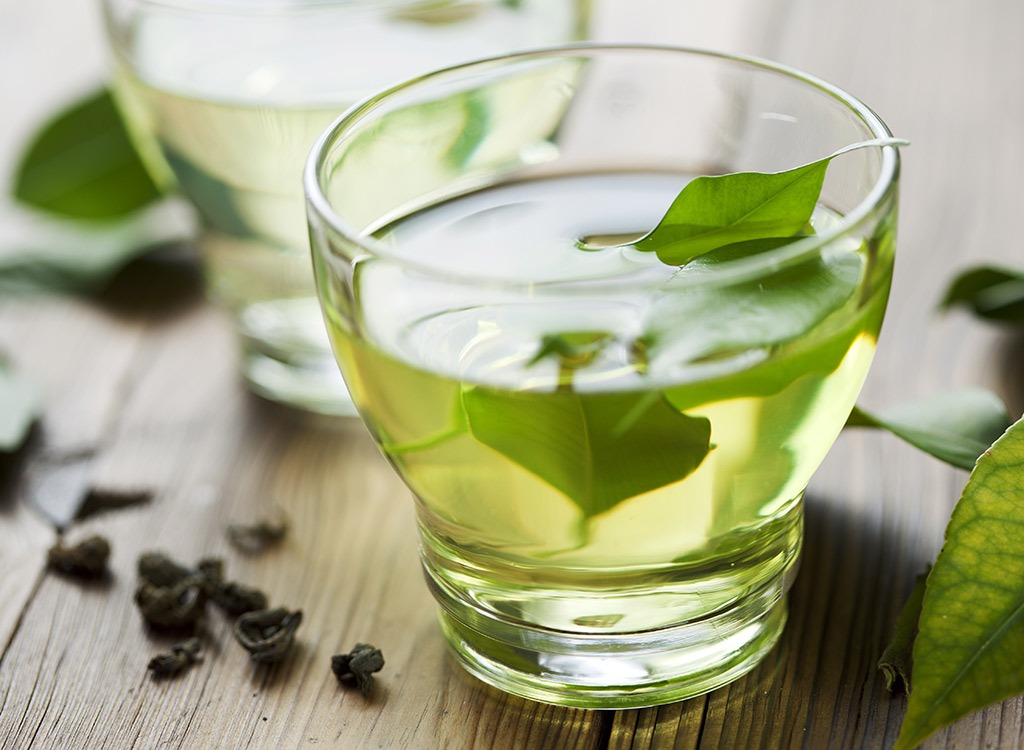
A cup of green tea keeps the doctor away—that’s how the saying should go.
“The antioxidants in green tea support immunity and protect your heart health by reducing cholesterol,” says Dr. Pianko.
In fact, research from Japan revealed that green tea drinkers live longer, and a 2020 study suggested that drinking green tea is linked to a reduced risk of death in those diagnosed with type 2 diabetes.
Dr. William Li, president and medical director of the Angiogenesis Foundation and author of Eat To Beat Disease: The New Science of How Your Body Can Heal Itself, adds that green tea leaves are loaded with natural bioactive chemicals called catechins.
“These can starve cancers by cutting off their blood supply, while also lowering your blood pressure, improving your body’s metabolism, and stimulating your stem cells to regenerate your organs from the inside out,” he explains. “All of these activities can support getting you to live longer.”
Here’s What Happens To Your Body When You Drink Green Tea.
Red wine

Pinot noir, malbec, cabernet sauvignon—whatever your red of choice is to unwind with, you have full permission to bust it out for a nightly glass.
“The benefits of red wine come from the many natural bioactives found in the skin of red grapes used to make the wine,” says Dr. Li. “Among them is resveratrol, which helps to slow cellular aging and improve vascular health.”
A Harvard study found that drinking red wine is associated with living a longer life, and according to Dr. Pianko, this may be due to the fact that studies have shown a connection between moderate red wine consumption and reduced risk of heart disease.
But before you go for a refill, consider that the keyword here is moderation. Heed the American Heart Association’s recommendation of limiting your consumption to no more than one 4-oz glass of wine a day if you’re a woman, or two glasses if you’re a man.
Cranberry juice
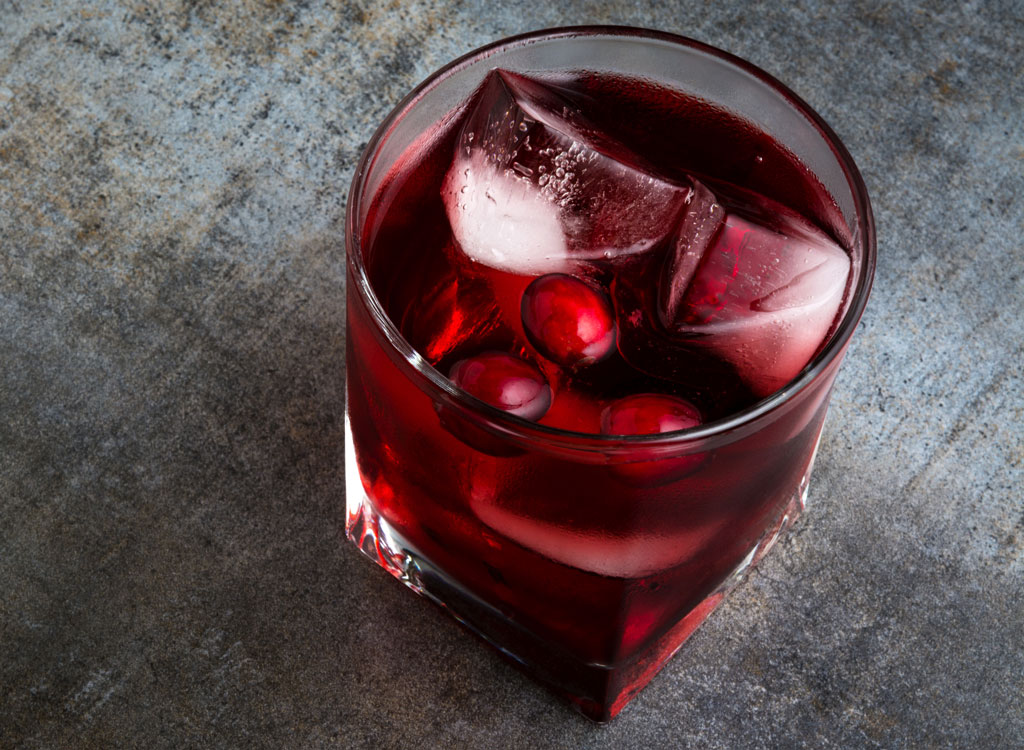
Cranberries are packed with heart-healthy polyphenols, which are known to have antioxidant and anti-inflammatory properties, as well as flavonoids, which are linked to both improved cardiovascular health and inflammation. Unfortunately, Dr. Pianko points out that much of these benefits are found in the skin of cranberries, which is removed in the juice-making process.
Still, a 2020 review found that drinking cranberry juice may help to “significantly” improve blood pressure, and another study linked drinking low-calorie cranberry juice to a reduction in risk for heart disease. Additionally, a recent study published in the journal Nutrients revealed that adults who consumed cranberry juice were more likely to have a lower waist circumference and a lower risk of being overweight or obese than those who didn’t drink it.
According to Dr. Li, drinking cranberry juice can increase levels of gamma delta T cells, which are involved in immune response, as well as virus-fighting cytokines.
“These effects make drinking cranberry juice a health defense booster that can help support longevity,” he says.
Be mindful, though, of the sugar content. Your healthiest option is to buy 100% cranberry juice with no added sugar and follow health experts’ guidelines by drinking no more than 8 ounces per day.
Here are The 7 Best ‘Healthy’ Juice Brands & Which To Avoid at All Costs.
Green juice
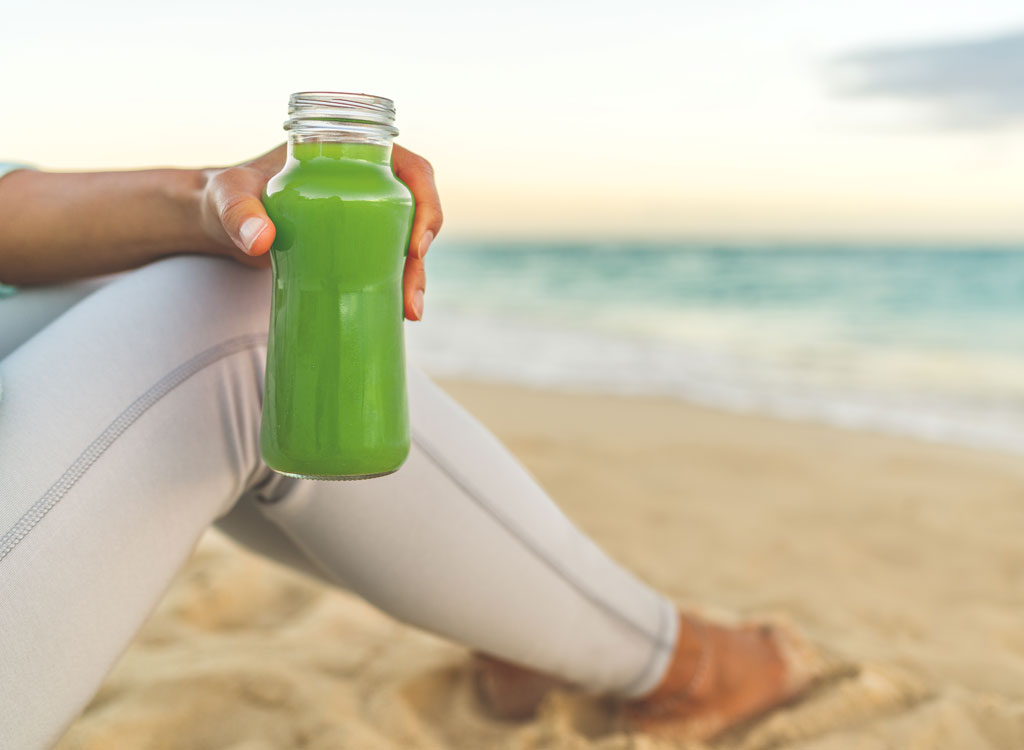
A green smoothie isn’t just a convenient way to get your fruits and veggies in—it could also very well add to your lifespan. Hence, why Dr. Ordon suggests whipping up a juice first thing in the morning. His favorite recipe? Juicing three carrots, one apple, half an orange, one stick of celery, and half an inch of fresh ginger.
“It’s packed with fiber to help eliminate water, gives you a small amount of carbs for energy, and most importantly because it’s full of vitamins and minerals,” he says.
Dr. Li also notes that certain veggies—like broccoli sprouts, kale, spinach, and bok choy—deliver sulforaphane and other natural bioactives that support your immune system.
“A stronger immune system helps you live longer by fighting off diseases that attack the body from the outside, like viruses, and those that attack from the inside, like cancer,” he adds.
Kick your green juice up a notch by adding avocado—which is chock-full of monounsaturated fats that can help to lower cholesterol, and ward off heart disease. A study published in the journal Cancer Research even found that molecules in avocados targeted stem cells of an aggressive type of leukemia—which is all the more reason to add this creamy fruit to your blends.
Karela juice
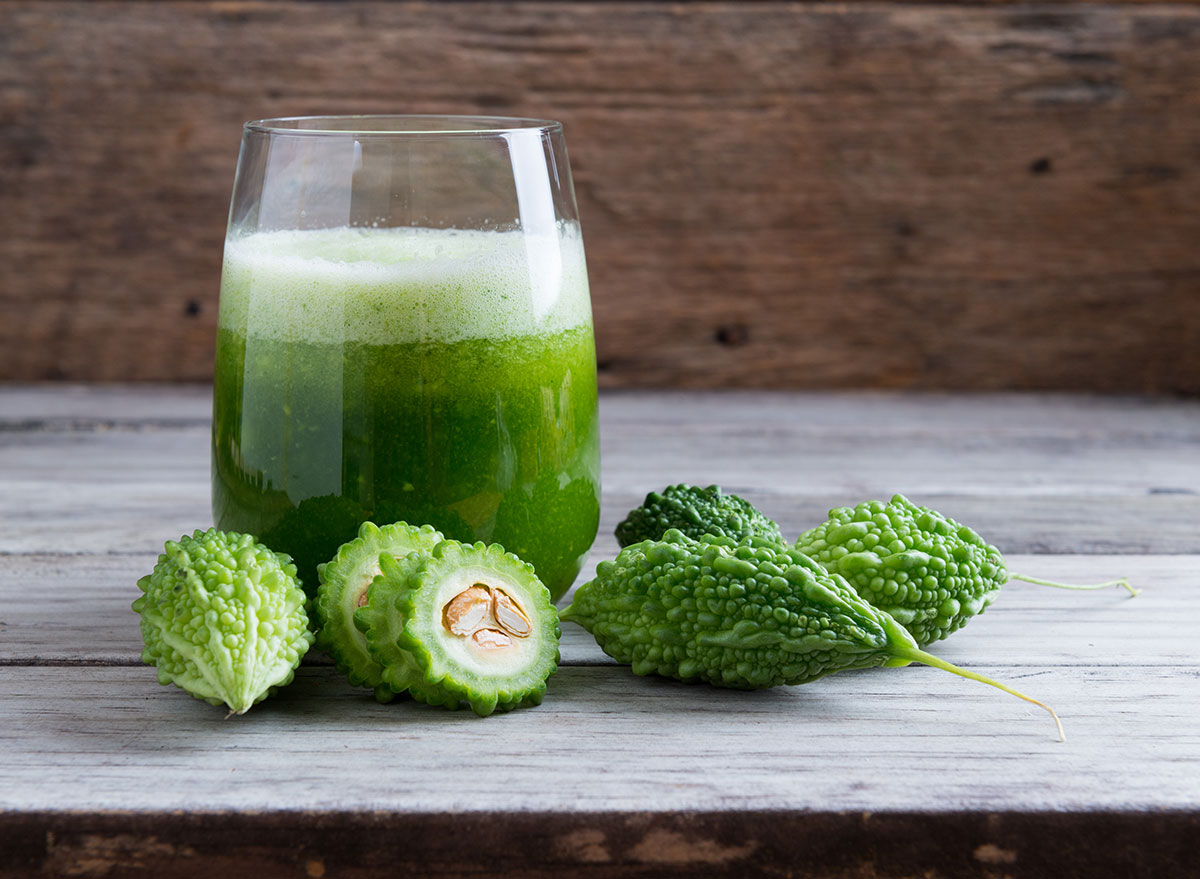
The citizens of Okinawa, a group of islands between Japan and Taiwan, are known for their exceptional longevity—which is often attributed to bitter melon, a staple in their diet.
There’s proof that supports this, too. First of all, a 100-gram serving of bitter melon contains a whopping 84 mg of vitamin C, which is up to 100% of the daily recommended amount. Vitamin C is an important nutrient that’s involved in disease prevention.
Studies have also shown that some of karela juice’s compounds may have cancer-fighting properties and that they can increase your HDL (good) cholesterol while decreasing LDL (bad) cholesterol, thus promoting heart health.
Since excess consumption of bitter melon juice can cause abdominal pain, among other unpleasant GI symptoms, it’s best to drink a small amount—around 30 milliliters to start. You can blend the raw fruit with water to make karela juice (adding a dash of lemon and/or honey to off-set the bitterness), or you can also boil dried or dehydrated slices in water to make bitter melon tea.
Here’s This One Diet Can Improve Your Heart Health, New Study Says.
Mushroom tea

Did you know that people have been drinking mushroom tea for its health benefits for thousands of years? Those who follow traditional Chinese medicine regard mushrooms as the “elixir of life”—and more specifically, reishi mushrooms are associated with immortality in the Chinese culture. There’s a reason for this, too: these fungi contain compounds called triterpenes, which can improve the functionality of all your vital organs. A 2017 study also determined mushrooms have a high concentration of two antioxidants (ergothioneine and glutathione) that are effective at protecting your cells from free radicals, which can cause damage that contributes to aging. Reishi mushrooms in particular contain complex sugars called beta-glucans that may help prevent cancer cells from growing and spreading.
Mushroom tea, which has a distinctly earthy flavor, can be found in pre-made teabags containing a combination of mushroom extracts and tea leaves. Or, you can make your own at home. Either way, be sure to consult with your doctor first to make sure that drinking mushroom tea won’t interact with any of your medications.
Tomato juice
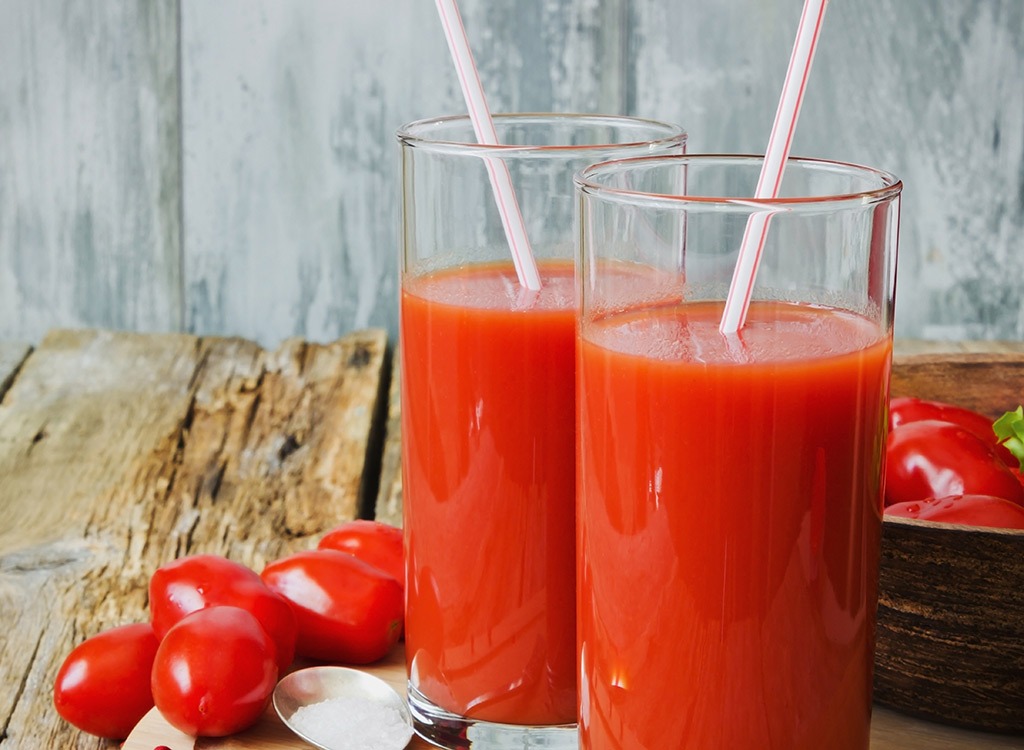
One of the major culprits of aging in your body is inflammation. In fact, when left unchecked, it can put you at a higher risk of heart disease, cancer, diabetes, arthritis, and bowel diseases. According to Harvard Health, one of the best ways to manage chronic inflammation is through your diet.
Tomatoes are one of the foods that can help to fight inflammation due to their lycopene content, which has also been shown to lower LDL or “bad” cholesterol. A 2005 review published in the European Journal of Internal Medicine revealed that consuming lycopene-rich tomato products—including juice—may decrease your risk of chronic diseases, like heart disease and cancer. Not only that, but Dr. Li notes that lycopene has been shown to lower the risk of prostate cancer in men.
In addition to lycopene, tomatoes are chock full of beta-carotene, vitamins C and E, and other antioxidants—all key nutrients that can promote good health. Making your own tomato juice is always the healthiest option because you can control how much salt is added—but if you decide to buy some at the supermarket instead, just be sure to take a look at the sodium content first.
You can get even more tomatoes in your diet with these 33+ Easy and Delicious Tomato-Based Recipes.
Pomegranate juice
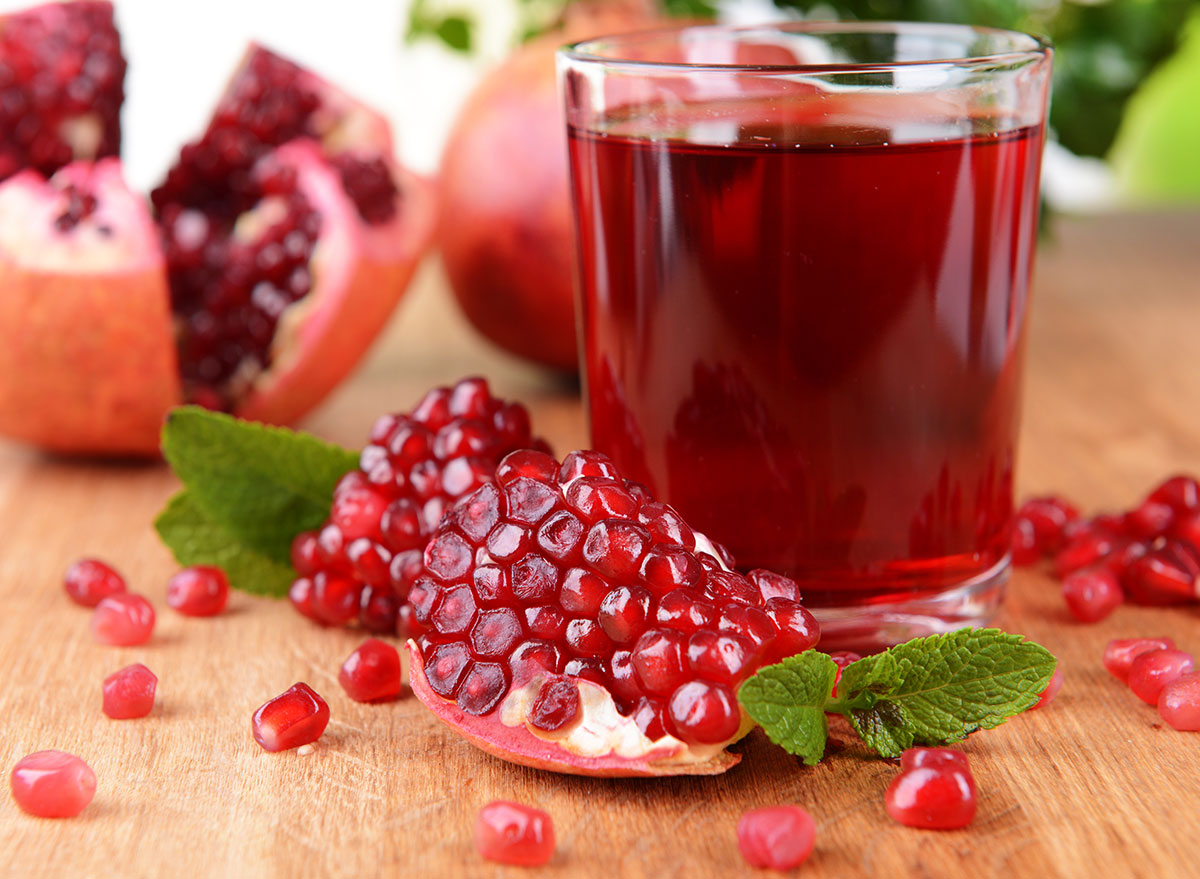
Not only are pomegranates packed with flavonoids, but they’re also an excellent source of antioxidants (like punicalagin)—both of which can protect your body from everyday toxins and oxidative stress. One of the reasons why pomegranate juice is so high in punicalagin is because the rind, which is chock-full of these beneficial compounds, is used in its production.
FYI, one study found that drinking 50 milliliters of pomegranate juice a day cut cholesterol and reduced damage to arteries in people with narrowed arteries, and another study found that a daily glass of pomegranate juice improved blood flow to the heart (thus resulting in a reduced risk of heart attack).
“Pomegranate juice contains ellagitannins that improve your gut health and can build immunity,” says Dr. Li.
As with any juice, it’s advisable to always opt for a product with minimal to no added sugar—plus, that way, you can fully appreciate the fruit’s uniquely tart flavor.
Blueberry juice
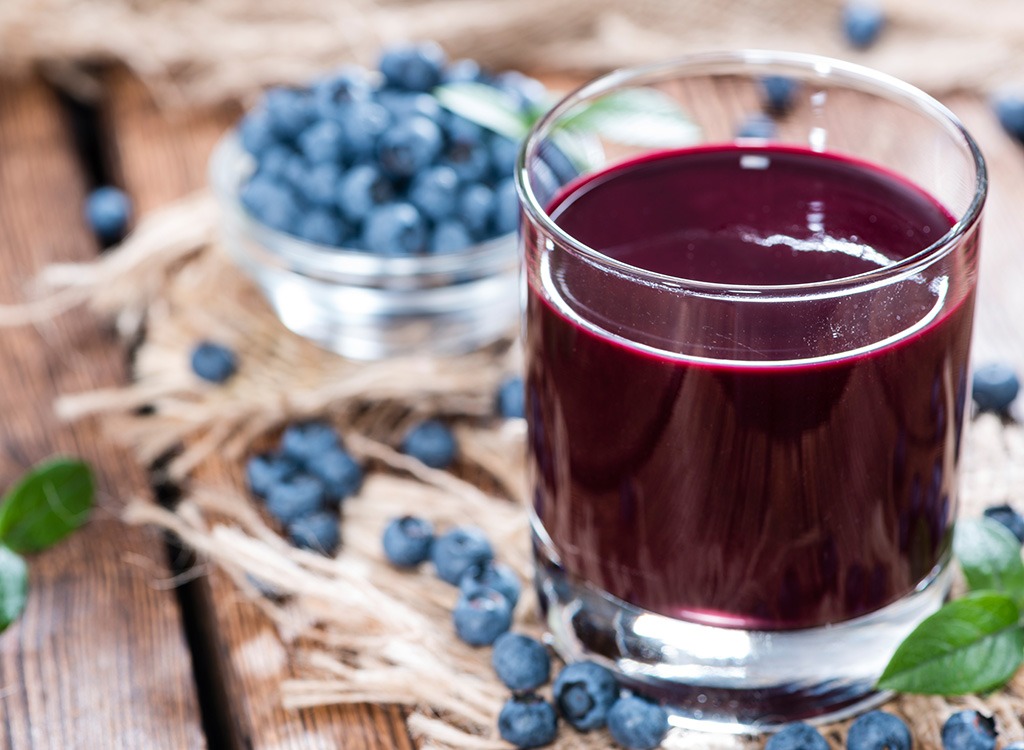
Just like pomegranate juice, blueberry juice contains high levels of antioxidants—like anthocyanins—which can shield your cells from the negative effects of free radicals in the environment or when your body breaks down certain foods. To boot, blueberry juice is a phenomenal source of vitamin C, which plays a role in maintaining bone health, repairing your body’s tissues, and healing wounds.
For maximum health benefits, look for organic, 100% pure blueberry juice with no added sugar.
Kombucha
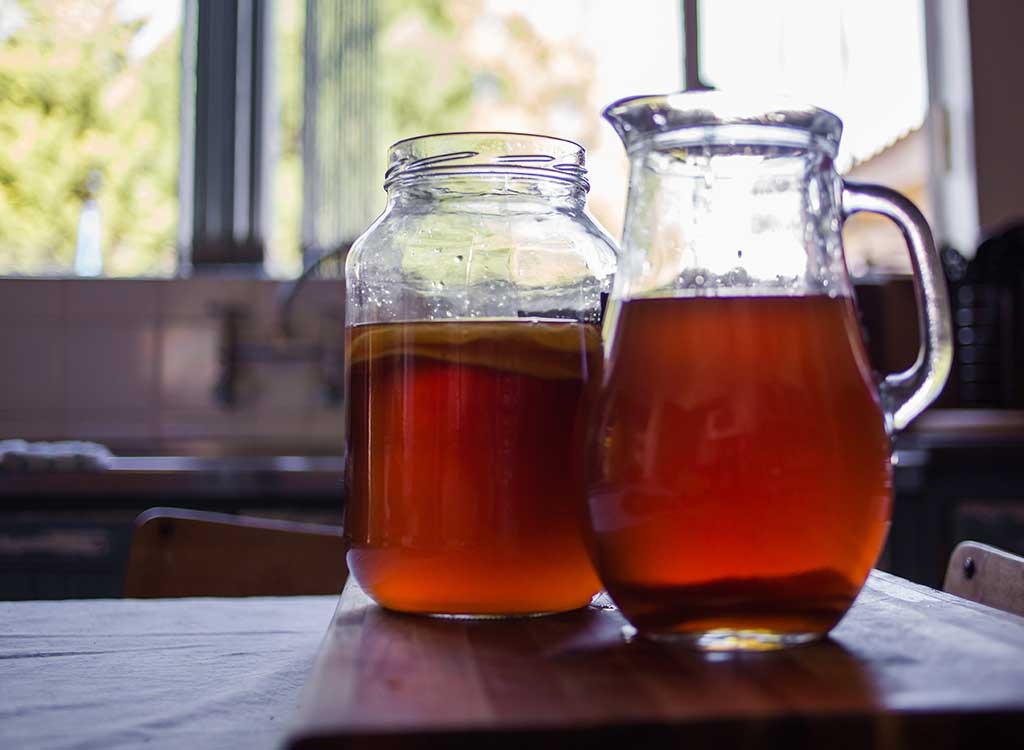
Since kombucha is made from tea, it should come as no surprise that it contains the same antioxidant benefits from the polyphenols. But kombucha goes one step further—after going through the fermentation process, these beverages gain probiotics, which are friendly bacteria known to support gut health. That’s noteworthy given that a healthy gut is associated with better overall physical health—in fact, a 2018 report concluded that a balanced microbiome can translate to a stronger immune system. Kombucha also contains acetic acid, which is famous for its antimicrobial properties. In other words, it may be able to kill off harmful bacteria in your body.
When shopping for a kombucha, be sure to buy one that only contains water, tea leaves, SCOBY, and a minimal amount of sugar. Also, it’s a good idea to consult your doctor before drinking kombucha if you’re pregnant or have a GI or autoimmune disorder. Here are the 11 Best Low-Sugar Kombucha Brands You Can Buy.
Yogurt-based smoothies
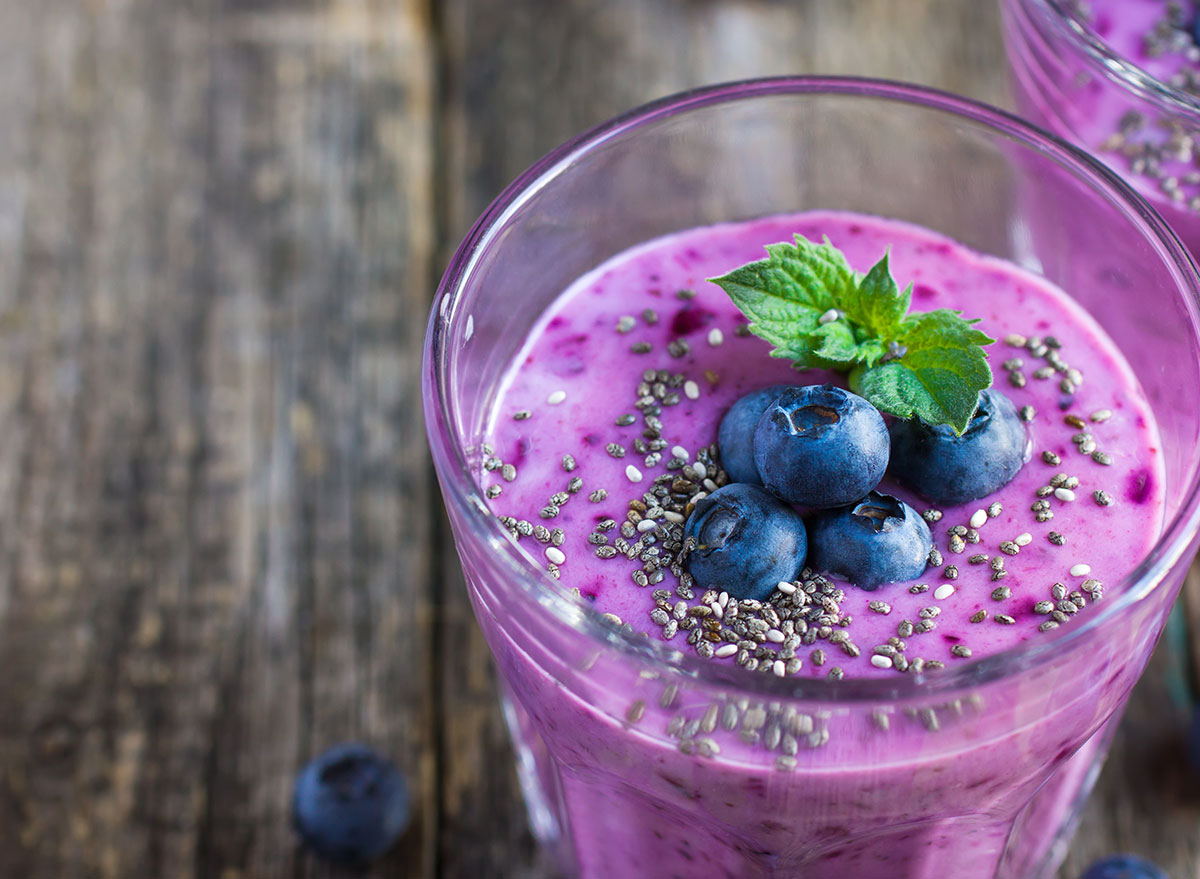
Speaking of probiotics, yogurt is known for being another powerhouse when it comes to this “good” bacteria. However, in order to reap these benefits, you’ll need to choose a product that contains the “Live and Active Cultures” logo.
Yogurt is loaded with protein, vitamins, and minerals than milk, and thanks to its acidity, it’s a lot easier for the body to absorb some of the nutrients it contains—such as calcium, magnesium, and zinc. According to Tufts University, research has confirmed that people who consume yogurt on the regular are more likely to have lower blood pressure and to have a better time managing their weight.
So, next time you’re whipping up a smoothie, try adding 1/2 cup of plain, low-fat Greek yogurt—not only could this habit potentially help you to live longer, but it’ll also result in richer, more satiating blends. Get started with these Best Greek Yogurts, According to Nutritionists.